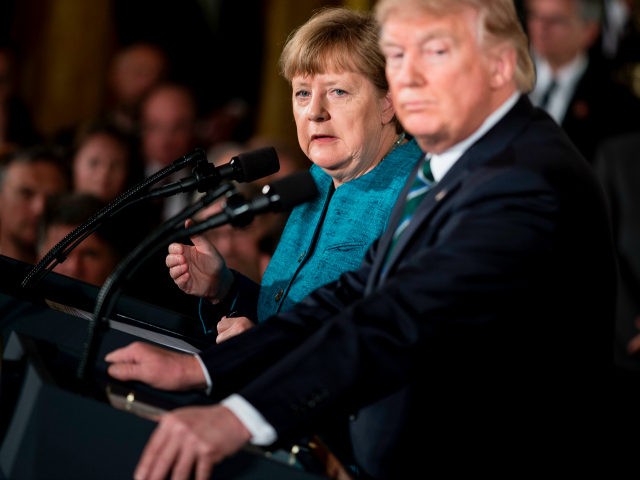In the first joint press conference between U.S. President Donald Trump and German Chancellor Angela Merkel, the German leader claimed that a trade deal between the U.S. and the EU would be like a trade deal between two countries.
Trade was the topic of much of the press conference between the two leaders as President Trump has made the subject one of the pillars of his administration. During the press questions, a reporter from German paper Die Welt asked Ms Merkel if she thought that a trade agreement between the EU and the U.S. would be multilateral or bilateral.
Merkel said and agreement like the Transatlantic Trade and Investment Partnership (TTIP) would be bilateral, indicating that she viewed the European Union as its own country, rather than a federation of countries.
“I believe that the president has clearly set out his philosophy as to what trade agreements have to bring about for the American side as well. I personally don’t think that Germany needs to negotiate and not the European Union.
“We’ve devolved our competences to the European Union, so the European Union, or rather the commission, negotiates on behalf of the member states,” Merkel said outlining that it is the unelected commission of the EU, whose role it is to be at the table for trade deals.
“So that’s not going to prevent us from concluding agreements and indeed this would then qualify as a bilateral agreement between the EU and the United States if we had it,” she added.
“The question is will it benefit both countries or not?” she said.
President Trump has made it clear that he supports bilateral trade deals over multilateral deals that can often involve a dozen or more countries with different values and different economic interests. One of the president’s first acts after assuming office was to scrap TTIP which, unlike Merkel, he did not believe was bilateral.
The view of Angela Merkel, that of pro-globalisation and of a centralised European Union, is being heavily challenged by countries like Hungary who wish to see reform in the union and more emphasis on the individual countries, than the central EU bureaucracy.
In April France will start the process of electing a new president and anti-mass migration candidate Marine Le Pen has already hit out at Merkel’s philosophy saying that she, like Trump, wants to put her country first and end the experiment of centralised supranational organisations like the EU. A win for Le Pen would likely strike a huge blow for Merkel and her philosophy.
Follow Chris Tomlinson on Twitter at @TomlinsonCJ or email at ctomlinson@breitbart.com

COMMENTS
Please let us know if you're having issues with commenting.